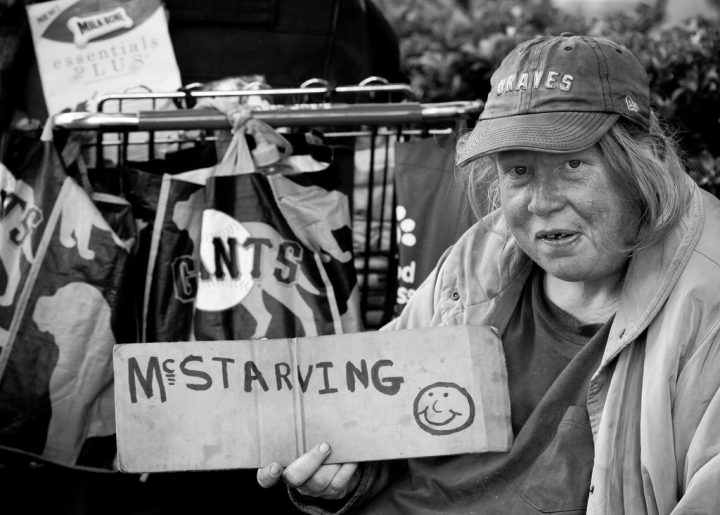By Leonardo Boff
The scandalous increase in world poverty has given rise to movements to eradicate this affliction of humanity.
On May 9th, there was an event at the National University of Rosario, Argentina, organized by the Chair of Water Sciences, a department of the Faculty of Social Sciences, coordinated by Professor Anibal Faccendi, to formulate a Declaration about the illegality of poverty. I had the opportunity to participate and deliver a motivational talk. The idea is to get support from the National Congress, from society at large and people from all over the continent, to take this demand to the United Nations, that it give it the highest priority. Previously, on October 17, 1987, Joseph Wresinski created the ATD International Movement, (from the Spanish, Movimiento Internacional Actuar Todos para la Dignidad, ATD), that included the International Day for the Eradication of Poverty. This year, it will be celebrated on September 17th, in many countries that have joined the Movement.
The Declaration of Rosario strengthened this Movement, pressing the international organs of the United Nations to effectively declare hunger to be illegal. The Declaration cannot remain only on paper. Its intent is that in the different institutions of countries, municipalities, neighborhoods, the city streets, the schools, movements be created to identify people, whether in situations of extreme poverty (living on less than two dollars a day, and without access to basic services) or of simple poverty, those who survive with a little more than two dollars and with limited access to infrastructure, housing, schools and other minimum humanitarian services. And then to organize actions of solidarity, to help them overcome this crisis, through their own actions.
In 2002, Kofi Annan, former UN Secretary General, firmly declared: «It is not possible for the international community to tolerate the fact that nearly half of humanity has to survive on two dollars a day, or less, in a world of unprecedented wealth».
In truth, the data are alarming. OXFAM is a Non Governmental Organization, (NGO), that collaborates with many other organizations in numerous countries, and has specialized in the study of the levels of inequality in the world. Every year it publishes its results, which are ever more terrifying. OXFAM generally goes to Davos, Switzerland, where the richest of the world are, to publish the data that unmasks them. In January 2017, OXFAM revealed that 8 people (the majority live there in Davos), possess wealth equivalent to the combined wealth of 3.6 billion people. That is, nearly half of humanity lives in a state of penury, whether extreme poverty, or, simple poverty, along side the most scandalous wealth.
If we take this data seriously, as we should, we realize that an ocean of suffering, illnesses, and the deaths of millions of children and adults, occur strictly as a consequence of hunger. Then we must ask ourselves: what has happened to the minimum of solidarity? Are we not cruel and without mercy towards our fellow human beings, those who are as human as we, who desire only a minimum of nourishment, just as we do? It makes them sick to see their children who cannot sleep because of hunger, and they themselves can eat only the scraps of old food they gather from the large city dumps, or received through the charity of people or some institutions (generally religious ones) that offer them enough that they may survive.
The poverty that causes hunger is murderous. It is one of the most violent forms of humiliating people, wrecking their bodies and wounding their souls. Hunger can lead a human being to delirium, desperation and violence. Here it is good to remember the ancient doctrine: extreme need does not know law, and theft in order to survive cannot be considered a crime, because life is more valuable than any material goods.
Hunger is systemic these days. Thomas Piketty, famous for his study about Capitalism in the XXI Century, showed how is hunger present, but hidden, in the United States, with 50 million in poverty. In the last 30 years, affirms Piketty, the income of the poorest remained static, while that of the wealthiest 1% grew by 300%. As Piketty concludes: «If nothing is done to overcome this inequality, it could destroy the whole society. Criminality and insecurity will increase. People will live with more fear than hope».
We have abolished slavery in Brazil. But when will we abolish hunger?






